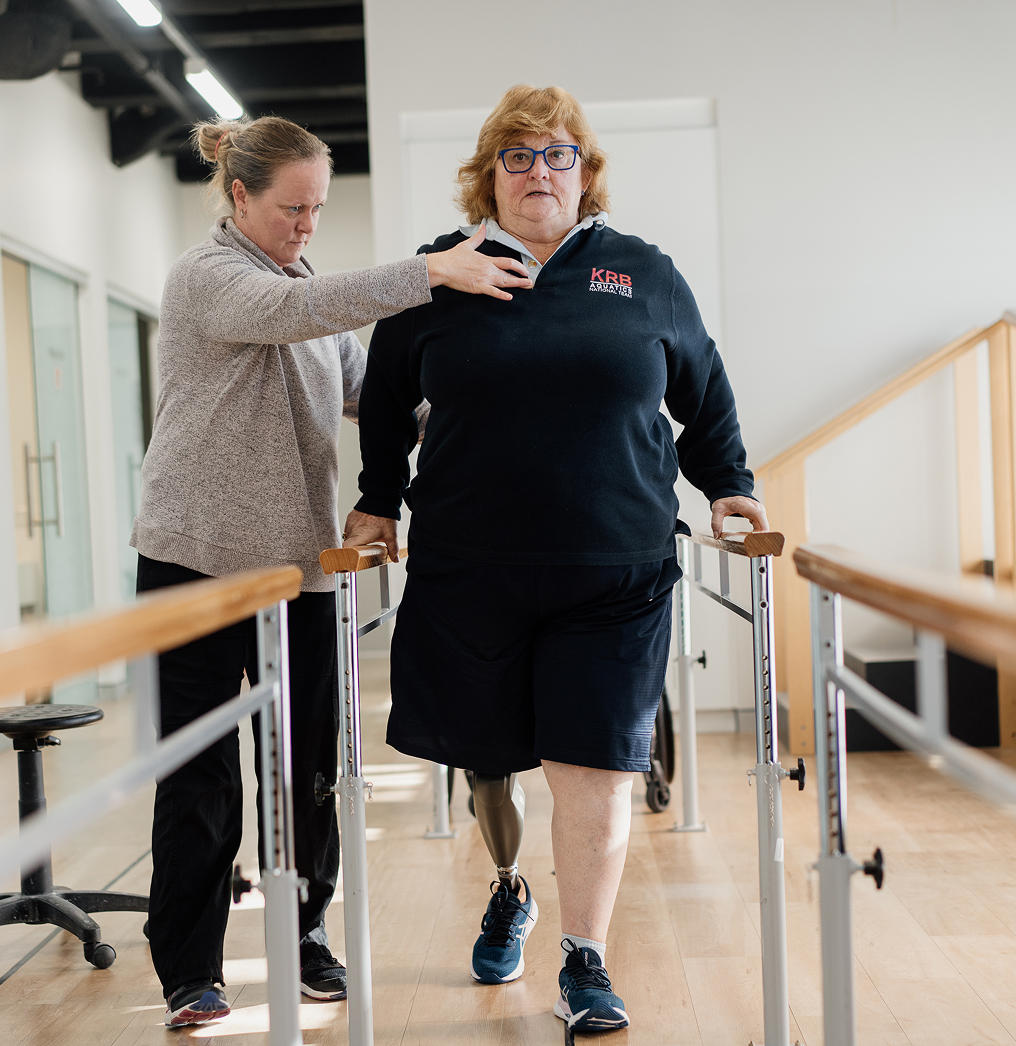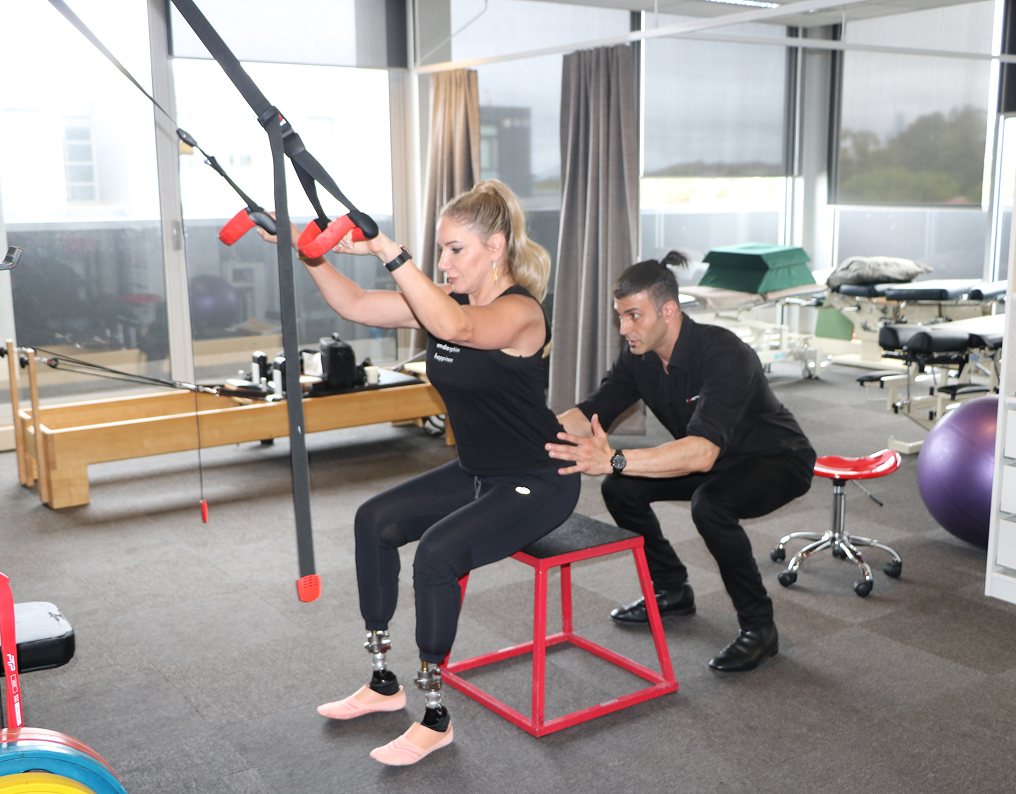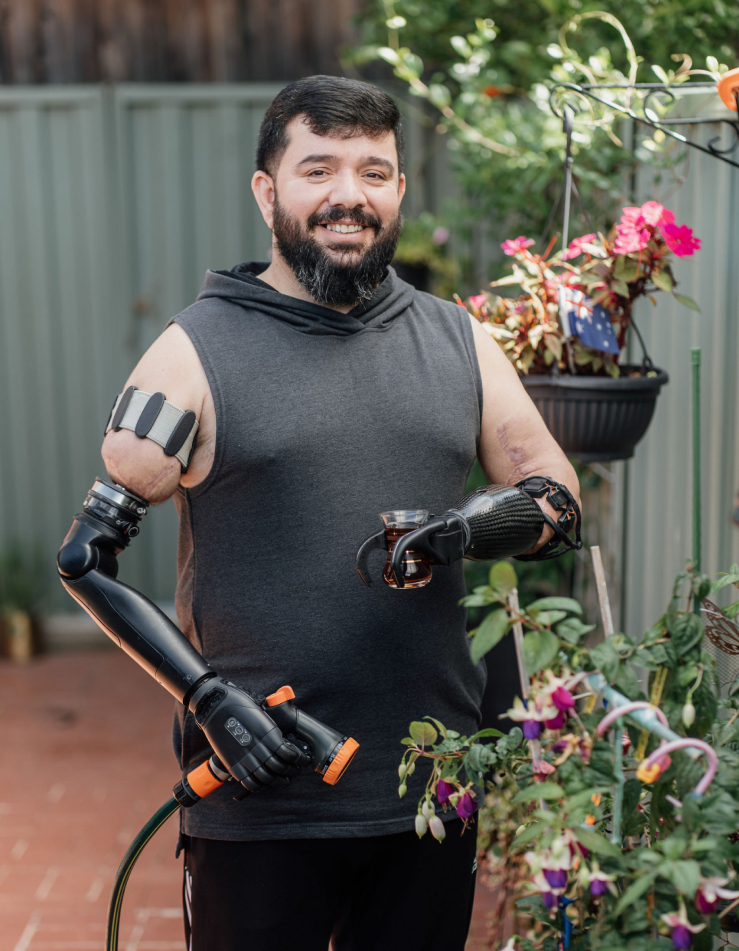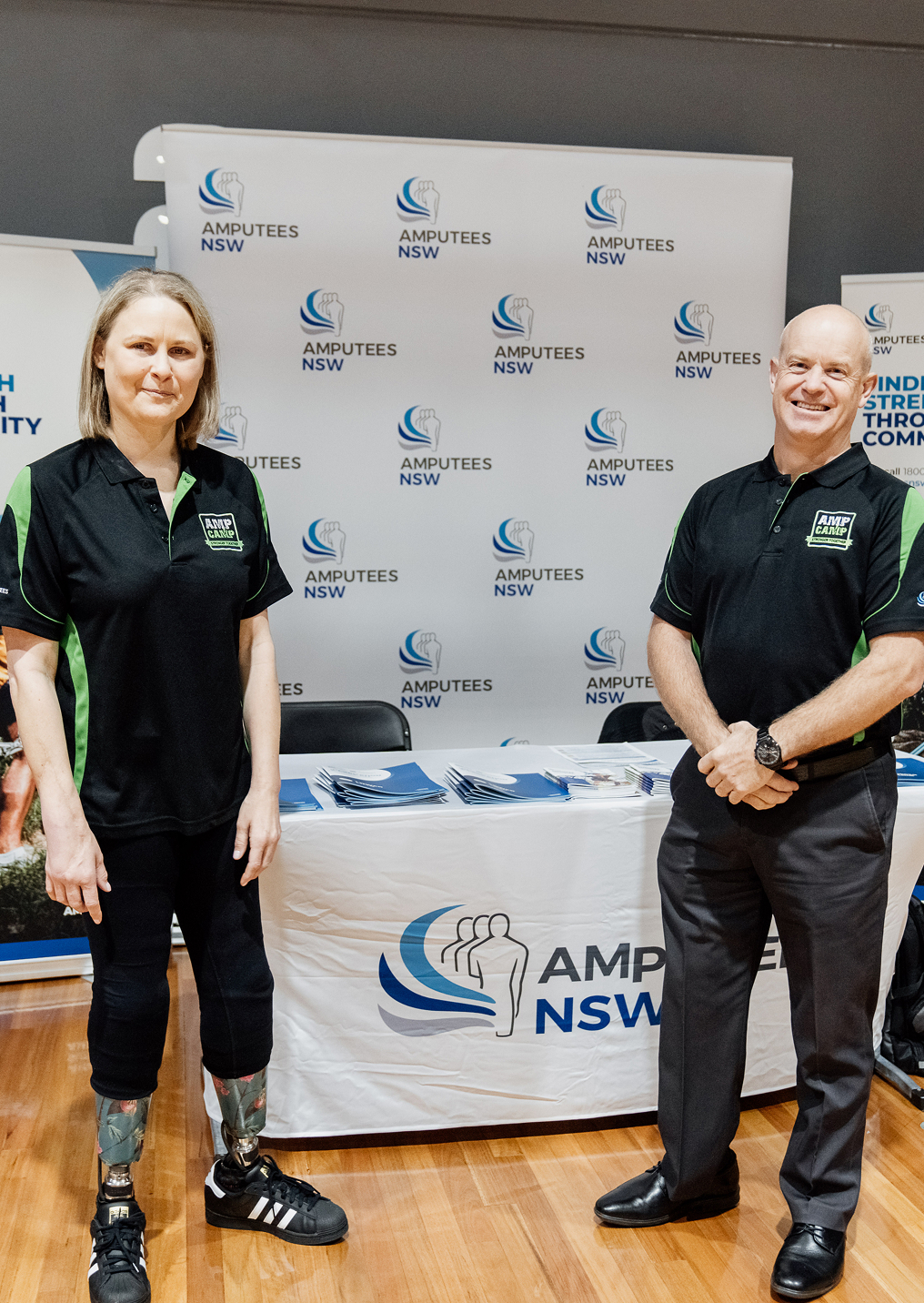
Physiotherapy isn’t just for the early stages of rehabilitation—it’s a lifelong tool for maintaining strength, flexibility, and stability. Regular sessions can help amputees and those with limb differences stay active, improve prosthetic use, and correct any gait habits that may develop over time. Staying engaged with a physiotherapist ensures you’re making the most of your mobility at every stage of life.
Physiotherapy is currently available onsite at APC ‘s Alexandria and Northmead offices to assist amputees in varying stages of their prosthetic usage:
Physiotherapy at APC Prosthetics is provided by Cathy Howells OAM, a registered physiotherapist with a special interest in amputee rehabilitation and over 30 years’ experience working exclusively with amputees. All our sites can help put you in touch with physiotherapists in your area who have experience working with prosthetic limb users.


Occupational Therapists (OTs) can help you learn how to use your prosthesis (especially Upper Limb) for specific tasks and training, along with recommending any modifications that need to be made to your home or car.
You may need a consultation with a trained OT in the process of getting your license for the first time after amputation.
OTs are essential in the process of applying for funding for upper extremity (UX) prosthetics. An OT will need to be present on your NDIS (National Disability Insurance Scheme) Assistive Technology (AT) Assessment alongside your prosthetist. They will aid in performing and interpreting clinical outcome measures (COMs) which are functional tests demonstrating levels of ability and need.
At APC Prosthetics, we work closely with your rehabilitation team to ensure the best outcomes for your health and prosthetic use. With over 20 years of experience attending amputee clinics, we take a multidisciplinary approach, consulting with specialists like dermatologists when needed. If you see a new specialist or start new medication, keeping your prosthetist informed can help maintain the best fit and function of your prosthesis.
Losing a limb can be a very emotional experience for you and those in your support group including friends or family. It is important you and those around you speak about how you are feeling with the appropriate support groups and services. Speak to your GP about how you can access the right mental health support for you.
There are also support services available through state and national amputee support groups.
Your prosthetist can help put you in touch with peer support groups that are run both on a state and national level. You will also find brochures in every APC branch or you can read our resource on Amputee/Limb Difference support groups here.
Limbs4Life is a charity that provides peer support options, amputee resources and wellbeing information. They also provide independent support to help you navigate disability and health-care system. They also offer social events and activities for amputees of all ages.
Amputees NSW is a volunteer based community organisation that provides support to anyone affected by limb difference. They aim to improve access to quality programmes, and news of upcoming events.

